The Pro Cyclist's Guide to the 2023 World Championship Road Race
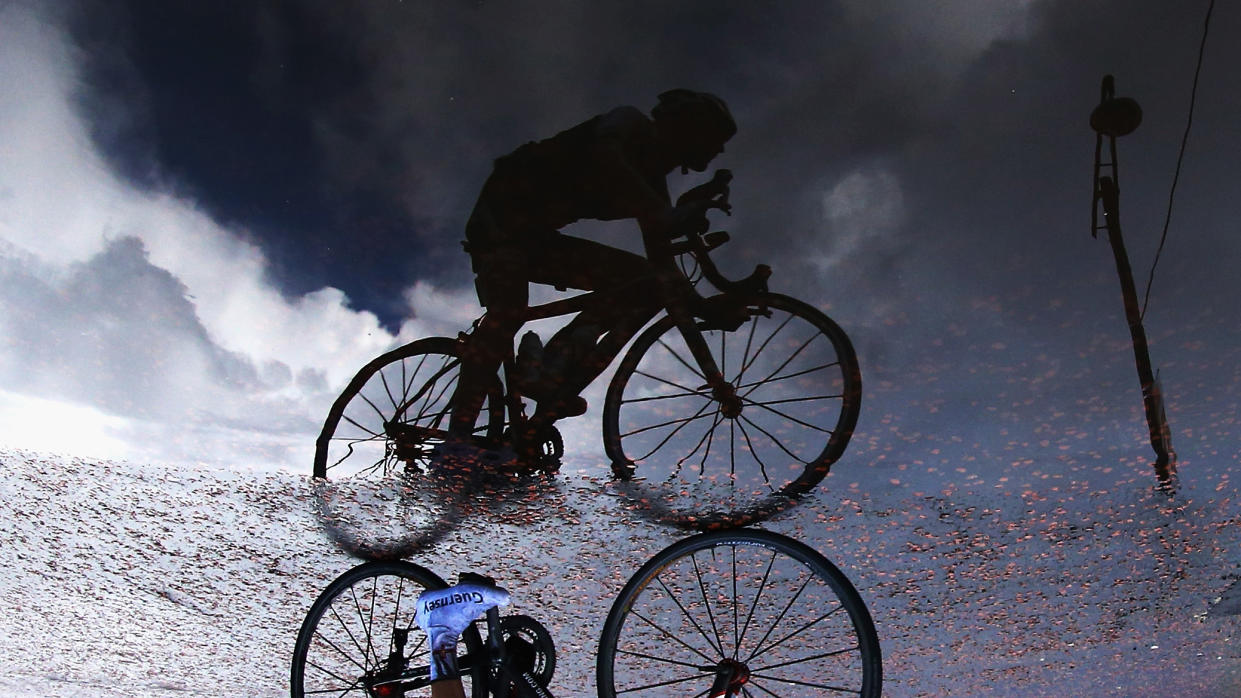
The routes for the men's and women's road races at the upcoming World Championships in Glasgow are full of intrigue, historical points of interest and the potential for exciting racing.
Proud Scots Anna Shackley and Sean Flynn know the course better than almost anyone. They spoke to Cyclingnews to give an insight into the roads they call home.
The UCI Cycling World Championships will conclude on the 13th of August with the women's elite road race. The route begins in the town of Balloch on the southern tip of Loch Lomond, Scotland's largest loch by surface area.
Anna Shackley was born and raised in Milngavie, 25 kilometres southeast of Balloch and 11 kilometres north of George Square in the centre of Glasgow where the road races finish. Shackley thinks Balloch will be a picturesque location for the start of the race.
"We start in Balloch, which is a really nice bit at the bottom of Loch Lomond. When you look up the Loch, it's really, really pretty," she said.

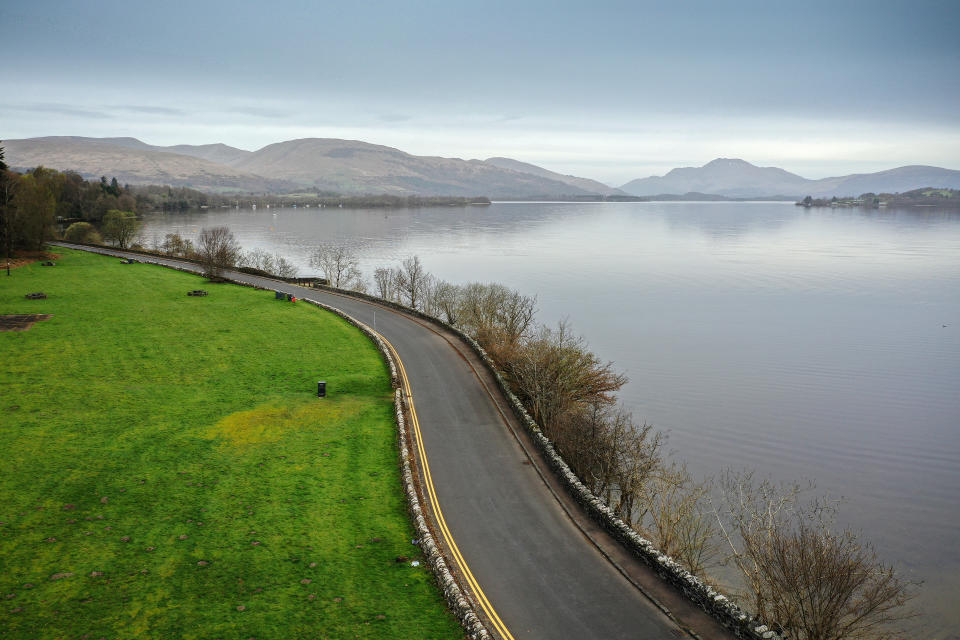
A view of Loch Lemond near Balloch
A short neutral zone will take the riders out of the West Dunbartonshire town towards the rolling roads and lush green countryside of Stirlingshire and the historic villages of Drymen and Fintry. It's a regular training road for Shackley and it moves the riders on towards the longest and highest climb of the day.
A popular hill for cyclists around the Glasgow area, the Crow Road climb is 5.4 kilometres at 4%. It features in the first third of both the women's and men's races so shouldn't be the hardest part of the day, but it will contribute to the gradual wearing down of the peloton.
Shackley, who rides for Team SD Worx, has a long history with this climb and thinks the Crow Road will present an opportunity for striking visual shots. "When you get to the top you have this really nice view of the whole of Glasgow. I think the aerial shots of the race will be good. The Crow Road is where I do all my efforts and everything like that, so it's pretty nice that it goes up that one. I think I cycle that climb nearly every single ride when I'm home."
Shortly after the descent, the course bends westward and into East Dunbartonshire. The race will just miss Shackley's childhood home in Milngavie by a couple of kilometres before it heads into Glasgow for the finishing circuit. Shackley has already seen some of the preparation for the event first-hand.
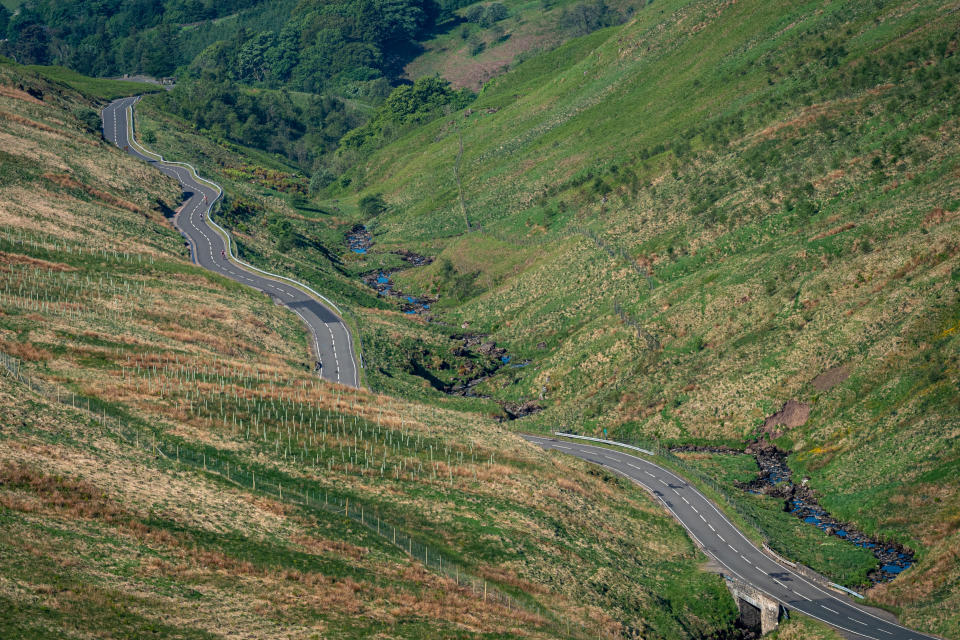
A view of the critical Crow Road climb from above
"I was home just a few weeks ago and it was really funny because they are resurfacing all of the roads that the route goes on to which is really nice because the roads where I am are pretty diabolical. It's not potholes, it's just craters. So it's really nice that they're resurfacing it but it's just this one road that they're doing - it looks a bit funny."
With the race going so close to home, it's a rare opportunity for Shackley's friends and family to see her race in person.
"I think it will be really nice as well because [my parents] rarely see me race because most of the races are in Europe and they're always working... I think it is also quite nice for a lot of my friends from back home because they don't really understand what I do. They just think I cycle around a little bit, they're not into cycling at all, but they're really excited for the worlds," Shackley said.
A week earlier the men's race will begin in Edinburgh, the Scottish capital and home to Team DSM's Sean Flynn.
The starting point for the race will be in Holyrood Park in the shadow of Arthur's Seat, an ancient volcano. It's a part of the city that Flynn knows well.
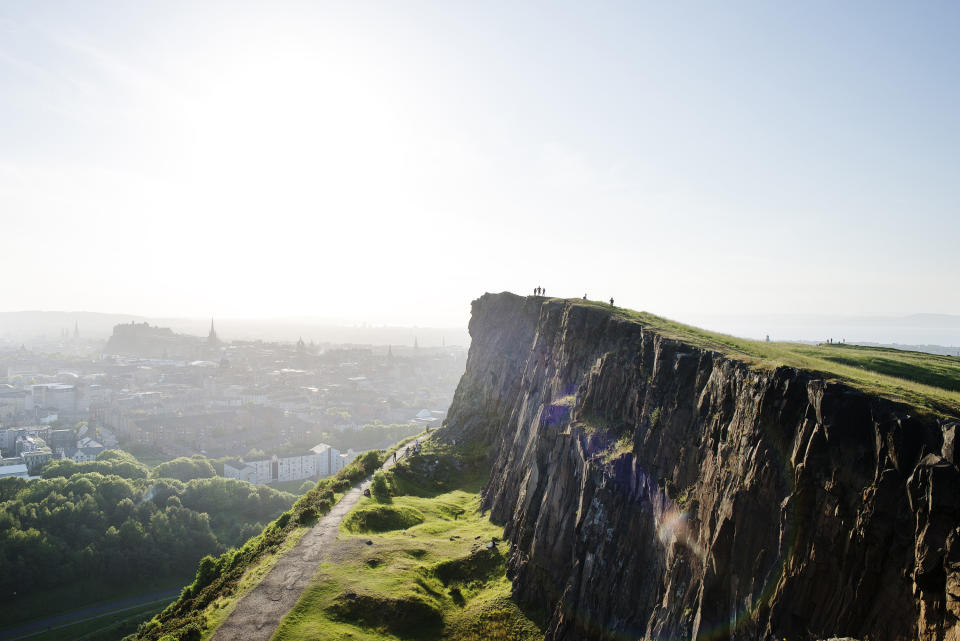
The men's road race will start in Holyrood Park, below Arthur's Seat

"I grew up doing laps of Arthur's Seat, there's a nice lap you can do around there. Part of it is closed off to traffic as well, so I often went there when I was younger," Flynn recalled.
Before the racing kicks off, the riders will meander through the famous streets of Edinburgh: riding over the cobbles of the Royal Mile (which is actually slightly longer than a mile) and into the Old Town where they will be able to look up to see the city's 920-year-old castle.
"It will definitely be quite a historic start and there will definitely be some impressive sights," Flynn said. "It will be cool for the bunch to be rolling through those roads. The nice thing about Worlds is the peloton is always super colourful because it's all the different countries and I think it'll look so nice."
As the peloton leaves the city, the racing will begin. After 16 kilometres, the route will take the riders to the Firth of Forth, an estuary separating Edinburgh from the county of Fife. The riders will have to negotiate the 2.7-kilometre Queensferry Crossing. It's the part of the route that is closest to Flynn's heart.
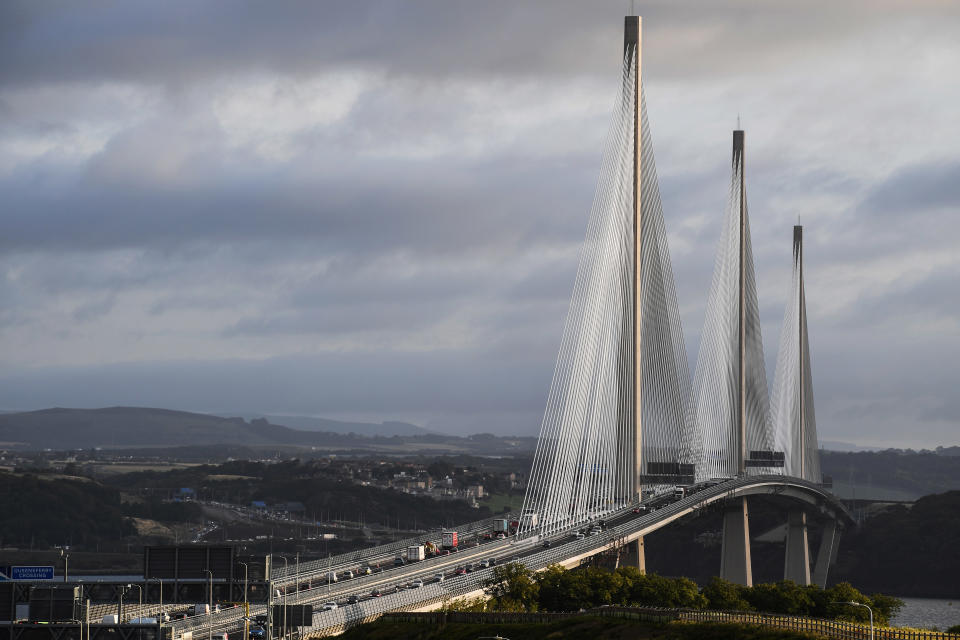
The Queensferry Crossing opened in 2017
"My grandparents live in North Queensferry so it goes basically right over their house. For my Nana, she would almost be able to watch it go past from her living room. So that would be pretty special… for me, that's probably the most special point of it from a personal point of view," Flynn said.
Thinking of the bridge, it would be tempting to cast one's mind back to the 2022 Tour de France Grand Départ in Denmark when tension gripped the peloton in anticipation of the 6.7-kilometre Great Belt Bridge at the end of stage 2. The peloton was anxious about crosswinds and crashes due to how exposed the road was. Flynn assures that there's no such danger here.
"It has kind of like wind-stopper things on the sides. They designed it like that so that it could stay open because the old bridge had to be closed when it was windy for high vehicles. So the wind shouldn't play a factor at all because it will be completely sheltered."
After this, the peloton will travel west again along the Fife coastline, which Flynn believes will be "fairly straightforward" and should be an opportunity for the race to settle down. They cross back over the estuary via the Clackmannanshire bridge and then past a curious landmark just before Falkirk.
Around 60 kilometres in, the peloton will be greeted by the sight of two 30-metre-high horses' heads. It's a sculpture created by artist Andy Scott called The Kelpies.
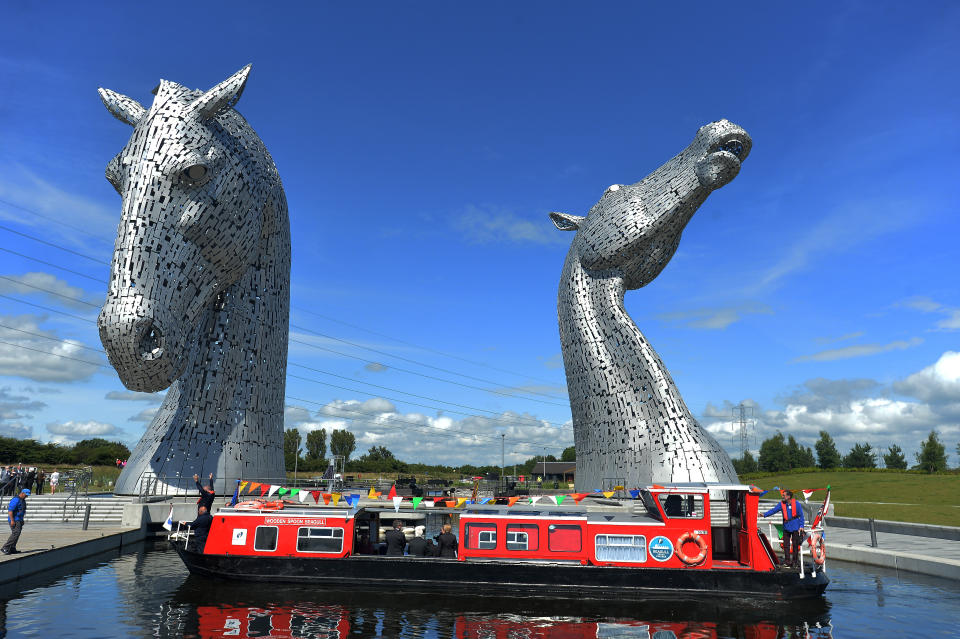
The Kelpies sculpture in Falkirk
A Kelpie is a Gaelic mythological water-borne shape-shifter that wields the strength and endurance of ten horses. It's perhaps an appropriate metaphor for the rider who finishes hands-aloft when the race finally concludes.
The course continues west before meeting the women's route in Fintry, climbing over the Crow Road and descending into Glasgow.
The finishing circuit in Glasgow's city centre cannot be described as the hardest a World Championship road race has ever seen – in total the women's race contains 2229 meters of climbing over 154 kilometres, while the men's has 3570 meters in 271 kilometres.
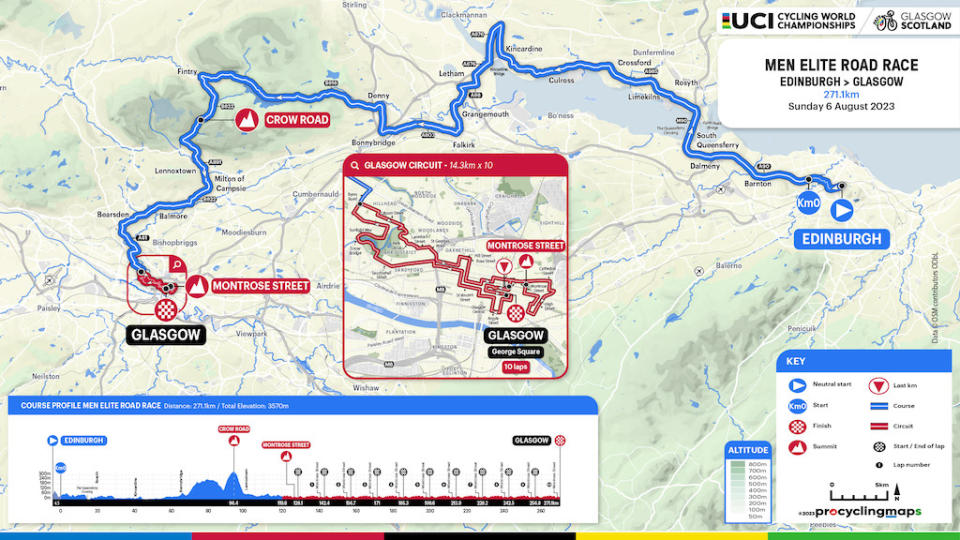
The Elite Men's Road Race route
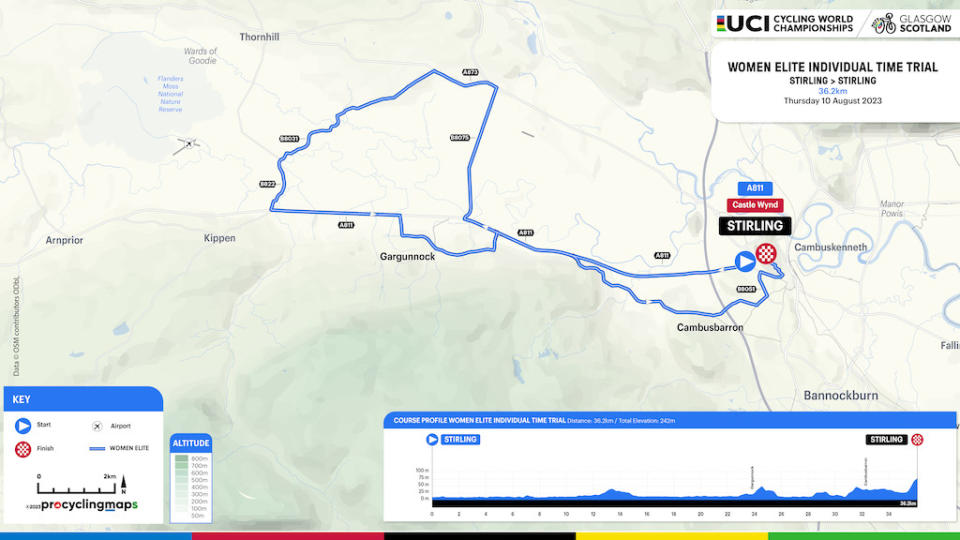
The Elite Women's Road Race route
The laps around Glasgow are similar to those tackled nine years ago in the 2014 Commonwealth Games road races. Those events were won solo by Lizzie Deignan and Geraint Thomas, competing for England and Wales respectively. Although there are no long climbs, it's a course full of attrition and short on rest points.
In 2014, the weather could be described most appropriately with a Scots word: dreich (wet and miserable). The riders were drookit (drenched) and it made for brutal racing. Just 27 riders finished the women's race, a mere six women within five minutes of Deignan, while only 12 finished a gruelling, sodden men's event.
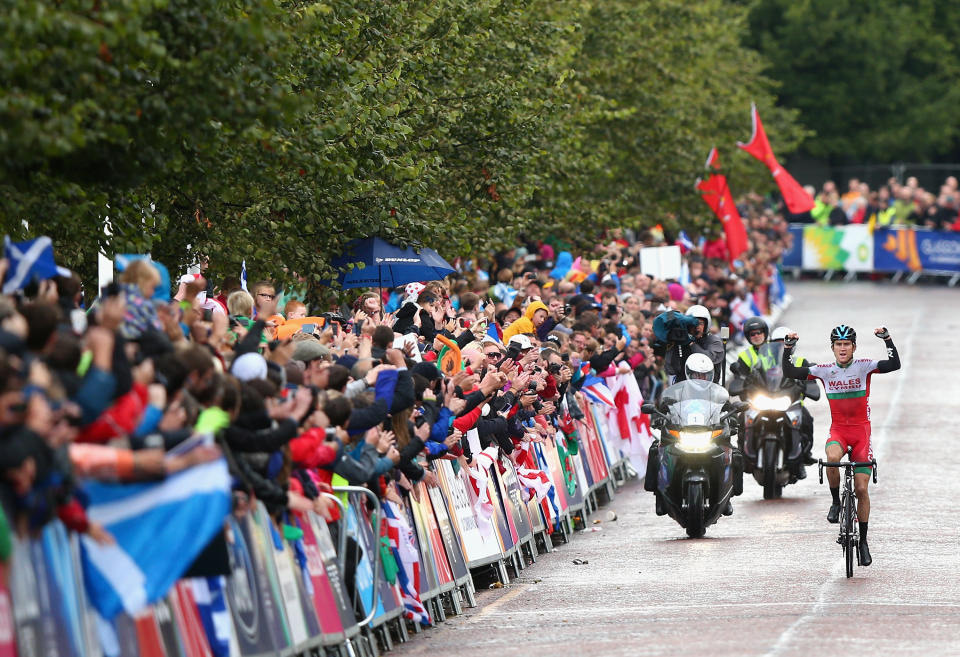
Geraint Thomas won the Commonwealth Games in 2014 in Glasgow
The riders will enter Glasgow through the west end - the "prettier side of Glasgow" according to Shackley - and round Kelvingrove Park and its grand 19th-Century constructed museum.
The 14.3-kilometre laps start and finish in George Square, home to statues of some of the greats of Scottish history such as Sir Walter Scott, James Watt and Robert Burns as well as Queen Victoria and Prince Albert. A fitting place to crown cycling's next world road race champions.
The circuit itself contains fifty corners each time around and six short climbs. It's going to be a technical six laps for the women and ten for the men. Both Flynn and Shackley agreed that it will be one for riders who usually do well in the classics.
Shackley believes the circuit will gradually wear the riders down.
"It's really, really twisty," she said. "There are no long climbs, but there are lots of short steep ones. You'll turn a corner and then it'll be a 15% little 500-metre kicker, but there will just be lots and lots of those. There's barely any flat on the circuit so after you do 6 laps of it, there's not going to be much of a bunch left."
Flynn agrees and adds that the weather could play a major part in race tactics.
"If it's wet it will be more selective because the corners will become slower and positioning will be more important…it's going to be a nervous race as soon as they enter the circuit."
Beautiful Scottish landscapes, Gaelic mythology, historic landmarks and a dizzying lap circuit. The routes for the road races at the 2023 World Championships really do have a bit of everything.
What’s in a Cyclingnews subscription? We use our subscription fees to be able to keep producing all our usual great content as well as more premium pieces like this one. Find out more here.
